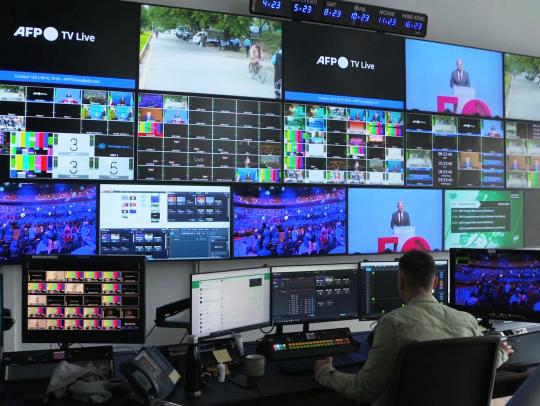The future of broadcasting in Africa: the sky is the limit
Africa is filled with creative people who excel at finding solutions. Think of the stories you’ve read of people (often with little formal education) building windmills to electrify their village. Or, the teams who are building computers and tablets from scrap components.
The dawn of digitalization (or digital migration) will provide more and better opportunities for Africans to excel. Digital migration has the potential to increase stability across the continent through an increase in access to information for the general population. And, as television is a visual medium –even the illiterate are able to access it.
It will also provide further opportunities for locally produced content and content developers. The film industry in Africa is bound to grow and migration will mean that more local ‘African’ content is created. Not only will these developers have access to wider audiences but at the same time this may lead to new job opportunities. Indeed a recent KPMG study suggests that digitization will also positively impact GDP growth, unemployment rates and literacy levels.
However a key challenge to this growth remains the slow transition by many countries and the concerns around the switch-over deadline being missed.
What is needed is co-operation. If similar standards can be agreed upon by Africa countries, even regionally, this will help with the easy sharing of content. This in turn would translate into cost savings for both the countries and the end-users in terms of set-top-boxes (STB).
There is a misconception that digital migration is expensive but we have a different take on this. For the past couple of years, SES has traversed the continent through our caravans to talk to stakeholders and government to demonstrate the power of satellite and how we have successfully assisted other countries to switch-over.
SES is dedicated to the African continent. We have three regional offices with local teams in South Africa, Ghana and Ethiopia, as well as two teleport networks in Ghana and Djibouti. We also hold specialised training programmes for installers and broadcasters and bigger, knowledge-sharing workshops, designed to build local expertise in the media and broadcasting industry across the continent.
Top broadcasters in Africa are already partnering with SES to grow their audiences in Africa. With nine satellites over Africa, and another to launch in 2014, our satellite capacity brings new opportunities to connect customers, employees and TV audiences, enabling operators to deliver thousands of hours of the latest TV content every day.
I also believe that the deadline is also a pipe dream.
To achieve it, it will be very important to ensure that there are sufficient STBs and points of distribution in country. Countries should consider both formal and informal distribution channels and subsidisation of the STBs. I also think that rural areas need to be made a key focus for the roll out. People in these areas will be limited in their ability to travel to main centres, and because of their remote location, they are the perfect beneficiaries of satellite technology. Focusing on converting these constituents – and positioning them as early adopters – will be important in obtaining the buy-in of the wider population.
ICT is a blessing for the continent. One only has to look at the uptake of mobile – and how Africa has overtaken the rest of the world in terms of number of users (nearly one billion people and counting) –to see how easier access to television and radio will usher in a significant positive change.
Some of the best examples are taking place in Kenya and South Africa. There is significant growth in the number of bloggers – and those of them who are making this their career. Improved access to internet infrastructure has meant that they are able to share their content with a wider audience and in turn help to inform and educate a wider population. The mobile phone will also become an even more valuable tool as it is used increasingly for TV, internet access and connecting Africans to each other and the world.
The sky really is the limit for this beautiful continent.




